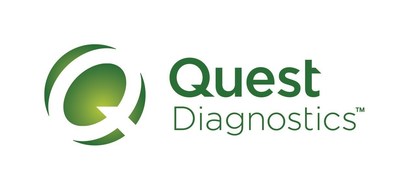Quest Diagnostics Launches New AD-Detect™ Blood Test to Aid in Confirming Alzheimer's Disease
Quest Diagnostics (NYSE: DGX) has launched AD-Detect™, a new laboratory blood test designed to confirm amyloid brain pathology in Alzheimer's disease patients with mild cognitive impairment or dementia. The test combines blood levels of amyloid beta 42/40 and p-tau217 to produce the AD-Detect Likelihood Score™.
Research presented at the 2025 AAN Annual Meeting demonstrated the test's 91% sensitivity and specificity, with positive and negative predictive values of 89% in mild cognitive impairment populations. The test showed strong performance in real-world specimens, categorizing 42% as high likelihood, 51% as low likelihood, and 7% as indeterminate for PET positivity.
The test is now available nationwide (except New York) through Quest's network of approximately 8,000 patient access points. This blood-based test offers a more affordable and less invasive alternative to traditional amyloid PET imaging and cerebral spinal fluid testing.
Quest Diagnostics (NYSE: DGX) ha lanciato AD-Detect™, un nuovo test di laboratorio del sangue progettato per confermare la patologia cerebrale da amiloide nei pazienti affetti da Alzheimer con lieve compromissione cognitiva o demenza. Il test combina i livelli ematici di amiloide beta 42/40 e p-tau217 per produrre il punteggio di probabilità AD-Detect Likelihood Score™.
La ricerca presentata al Congresso Annuale AAN 2025 ha dimostrato la sensibilità e specificità del 91% del test, con valori predittivi positivi e negativi dell'89% nelle popolazioni con lieve compromissione cognitiva. Il test ha mostrato prestazioni solide su campioni reali, categorizzando il 42% come alta probabilità, il 51% come bassa probabilità e il 7% come indeterminato per la positività al PET.
Il test è ora disponibile a livello nazionale (eccetto New York) attraverso la rete di Quest di circa 8.000 punti di accesso per i pazienti. Questo test basato sul sangue offre un'alternativa più conveniente e meno invasiva rispetto all'imaging tradizionale PET dell'amiloide e ai test del liquido cerebrospinale.
Quest Diagnostics (NYSE: DGX) ha lanzado AD-Detect™, una nueva prueba de laboratorio de sangre diseñada para confirmar la patología cerebral de amiloide en pacientes con enfermedad de Alzheimer que presentan deterioro cognitivo leve o demencia. La prueba combina los niveles de amiloide beta 42/40 y p-tau217 para producir el Puntaje de Probabilidad AD-Detect Likelihood Score™.
La investigación presentada en la Reunión Anual de la AAN 2025 demostró la sensibilidad y especificidad del 91% de la prueba, con valores predictivos positivos y negativos del 89% en poblaciones con deterioro cognitivo leve. La prueba mostró un rendimiento sólido en muestras del mundo real, categorizando el 42% como alta probabilidad, el 51% como baja probabilidad y el 7% como indeterminado para la positividad del PET.
La prueba ya está disponible a nivel nacional (excepto en Nueva York) a través de la red de Quest de aproximadamente 8,000 puntos de acceso para pacientes. Esta prueba basada en sangre ofrece una alternativa más asequible y menos invasiva en comparación con la imagenología tradicional de PET del amiloide y las pruebas de líquido cefalorraquídeo.
Quest Diagnostics (NYSE: DGX)는 AD-Detect™를 출시했습니다. 이는 경도 인지 장애 또는 치매가 있는 알츠하이머병 환자의 아밀로이드 뇌 병리를 확인하기 위해 설계된 새로운 혈액 검사입니다. 이 검사는 아밀로이드 베타 42/40 및 p-tau217의 혈중 수준을 결합하여 AD-Detect Likelihood Score™를 생성합니다.
2025 AAN 연례 회의에서 발표된 연구는 이 검사의 91% 민감도 및 특이성을 입증했으며, 경도 인지 장애 집단에서 긍정적 및 부정적 예측 값은 89%였습니다. 이 검사는 실제 샘플에서 강력한 성능을 보여주었으며, 42%를 높은 가능성, 51%를 낮은 가능성, 7%를 PET 양성 여부에 대해 불확실한 것으로 분류했습니다.
이 검사는 현재 Quest의 약 8,000개 환자 접근 지점을 통해 전국적으로(뉴욕 제외) 이용 가능합니다. 이 혈액 기반 검사는 전통적인 아밀로이드 PET 이미징 및 뇌척수액 검사에 비해 더 저렴하고 덜 침습적인 대안을 제공합니다.
Quest Diagnostics (NYSE: DGX) a lancé AD-Detect™, un nouveau test sanguin de laboratoire conçu pour confirmer la pathologie cérébrale amyloïde chez les patients atteints de la maladie d'Alzheimer présentant un léger trouble cognitif ou une démence. Le test combine les niveaux sanguins d'amyloïde bêta 42/40 et de p-tau217 pour produire le Score de Probabilité AD-Detect Likelihood Score™.
Les recherches présentées lors de la Réunion Annuelle de l'AAN 2025 ont démontré la sensibilité et la spécificité de 91% du test, avec des valeurs prédictives positives et négatives de 89% dans les populations présentant un léger trouble cognitif. Le test a montré de solides performances sur des échantillons du monde réel, catégorisant 42% comme haute probabilité, 51% comme basse probabilité et 7% comme indéterminé pour la positivité au PET.
Le test est désormais disponible à l'échelle nationale (sauf à New York) à travers le réseau de Quest d'environ 8 000 points d'accès pour les patients. Ce test basé sur le sang offre une alternative plus abordable et moins invasive à l'imagerie PET traditionnelle de l'amyloïde et aux tests du liquide céphalorachidien.
Quest Diagnostics (NYSE: DGX) hat AD-Detect™ eingeführt, einen neuen Laborbluttest, der entwickelt wurde, um die Amyloid-Hirnpathologie bei Alzheimer-Patienten mit leichter kognitiver Beeinträchtigung oder Demenz zu bestätigen. Der Test kombiniert die Blutwerte von Amyloid beta 42/40 und p-tau217, um den AD-Detect Likelihood Score™ zu erzeugen.
Forschungsarbeiten, die auf dem 2025 AAN Jahresmeeting präsentiert wurden, zeigten die 91% Sensitivität und Spezifität des Tests, mit positiven und negativen prädiktiven Werten von 89% in Populationen mit leichter kognitiver Beeinträchtigung. Der Test zeigte eine starke Leistung in realen Proben und kategorisierte 42% als hohe Wahrscheinlichkeit, 51% als niedrige Wahrscheinlichkeit und 7% als unbestimmt für die PET-Positivität.
Der Test ist jetzt landesweit (außer in New York) über das Netzwerk von Quest mit etwa 8.000 Patienten-Zugangsstellen verfügbar. Dieser blutbasierte Test bietet eine kostengünstigere und weniger invasive Alternative zur traditionellen Amyloid-PET-Bildgebung und zur Untersuchung der Gehirn-Rückenmarksflüssigkeit.
- High accuracy with 91% sensitivity and specificity in detecting Alzheimer's
- Strong commercial potential with access to 8,000 patient service points nationwide
- More cost-effective solution compared to traditional testing methods
- Addresses large market with 7 million Americans having Alzheimer's
- Not available in New York state market
- 15% indeterminate risk rate in initial testing
- validation against non-AD causes of dementia
Insights
Quest Diagnostics' launch of the AD-Detect™ blood test represents a significant market opportunity in the growing Alzheimer's diagnostics space. With
The addressable market is substantial - nearly 7 million Americans have Alzheimer's, projected to double to 14 million by 2060. Additionally,
Quest's extensive infrastructure (approximately 8,000 patient access points including 2,000 service centers) provides immediate nationwide scalability, allowing rapid commercialization and revenue capture. The centralized testing model at their specialized California laboratory creates operational efficiency.
This product launch is particularly well-timed with the emergence of new Alzheimer's therapies that require accurate diagnosis before treatment. By addressing the
The AD-Detect™ test represents a significant advancement in Alzheimer's diagnostics by combining two critical biomarkers - amyloid beta (Aβ) 42/40 ratio and phosphorylated tau217 - into a composite score with remarkable accuracy. The
What's particularly impressive is the test's validation in a heterogeneous cohort with only
This test addresses several critical diagnostic bottlenecks. First, it democratizes access by eliminating dependence on specialists and advanced imaging facilities. Second, it provides actionable results that enable physicians to confidently rule in or rule out Alzheimer's pathology without necessarily requiring confirmatory PET or CSF testing. Third, it effectively stratifies patients with
The company's proprietary tandem mass spectrometry for Aβ measurement provides technical advantages over antibody-based approaches used by competitors. This test substantially accelerates the diagnostic pathway, potentially reducing delays in appropriate treatment initiation while limiting unnecessary exposure to powerful medications for those without Alzheimer's pathology.
In an oral presentation at the 2025 AAN Annual Meeting, Quest scientists presented data suggesting the test can accurately assess Alzheimer's disease pathology with greater than
The laboratory-developed test, named AD-Detect™ Abeta 42/40 and p-tau217 Evaluation, combines results of blood levels of amyloid beta (AB) 42/40 determined by the company's proprietary tandem mass spectrometry techniques with blood levels of p-tau217 determined by an in vitro immunoassay test. The test results are then used to produce the AD-Detect Likelihood Score™, a composite interpretation created through a proprietary algorithm validated utilizing a well-characterized cohort from the 1Florida Alzheimer's Disease Research Center (ADRC).
The new Quest test panel builds on prior AD-Detect tests that individually assess AB 42/40 and p-tau217, as well as p-tau181 and the ApoE isoform, a genetic risk marker. Those tests help providers assess risk of AD rather than confirm likelihood of amyloid brain pathology due to AD.
"Quest's AD-Detect suite of advanced diagnostics has grown to include a range of validated blood-based biomarkers, giving providers options for personalizing testing for the individual patient," said Kathleen Valentine, Vice President and General Manager, Neurology, Quest Diagnostics. "Quest's innovations in blood testing combined with our broad patient access are making it easier, faster and more affordable to evaluate patients for AD and other complex diseases."
Research demonstrates test's strong alignment with PET
In AD, a protein called amyloid forms plaques in the brain, triggering changes in another protein, tau, and causing it to twist into tangles. These plaques and tangles disrupt brain cell function while also causing abnormal levels of both proteins to circulate in the blood stream.
In an oral presentation given this week at the American Academy of Neurology (AAN)'s Annual Meeting in
The researchers also categorized 4,326 "real-world specimens" tested by Quest for AB 42/40, p-tau217 and ApoE4 values. The model and cut points categorized these specimens as having
"As the population ages and new therapies emerge, our new AD-Detect test will help fill the need for scalable, high-volume solutions that broaden access to robust and affordable evaluation of AD," said study co-author Michael Racke, MD, a board-certified neurologist and Medical Director of Neurology at Quest Diagnostics. "Our new test fulfills acceptable performance criteria set forth by the CEOi. We believe it will give providers greater confidence to move patients with a high likelihood score for AD more quickly on the path to treatment and potentially prevent the use of PET and lumbar puncture in patients whose blood values strongly indicate they do not have AD."
While amyloid PET imaging and cerebral spinal fluid testing are established methods for aiding the diagnosis of AD, they are significantly more expensive, invasive and specialist-dependent than blood-based tests.
The study's strengths included significant ethnic diversity in the population (over
Broadening access to quality AD assessment
With the exception of
Nearly 7 million Americans have Alzheimer's, the most prevalent dementia, a number projected to reach 14 million by 2060. Approximately 12
Quest is committed to developing innovative advanced diagnostics to aid in evaluating AD and other brain diseases. For more information, visit www.QuestForTheCure.com.
About Quest Diagnostics
Quest Diagnostics works across the healthcare ecosystem to create a healthier world, one life at a time. We provide diagnostic insights from the results of our laboratory testing to empower people, physicians and organizations to take action to improve health outcomes. Derived from one of the world's largest databases of de-identifiable clinical lab results, Quest's diagnostic insights reveal new avenues to identify and treat disease, inspire healthy behaviors and improve healthcare management. Quest Diagnostics annually serves one in three adult Americans and half the physicians and hospitals in
1 Except in
![]() View original content to download multimedia:https://www.prnewswire.com/news-releases/quest-diagnostics-launches-new-ad-detect-blood-test-to-aid-in-confirming-alzheimers-disease-302424107.html
View original content to download multimedia:https://www.prnewswire.com/news-releases/quest-diagnostics-launches-new-ad-detect-blood-test-to-aid-in-confirming-alzheimers-disease-302424107.html
SOURCE Quest Diagnostics








